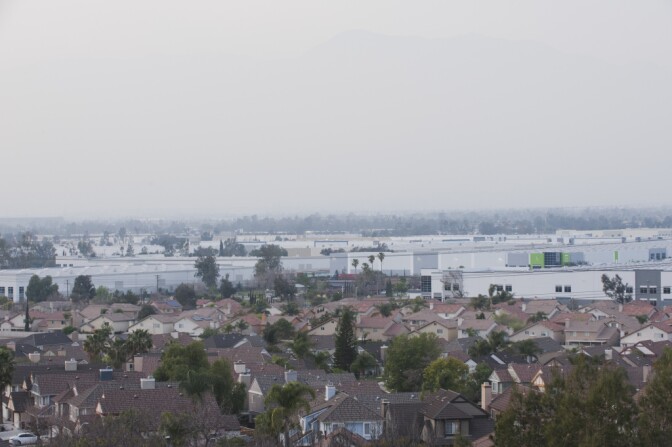Good morning, L.A. It’s March 3.
Poll after poll shows that affordable housing is one of the top issues of concern among Angelenos. People are being priced out of their homes at alarming rates, and the problem greatly exacerbates our growing population of people who are unhoused.
Sometimes it seems like there are as many contributing factors as there are people seeking to resolve the issue. My colleague David Wagner reports on one of the major, systemic problems: zoning laws.
The phrase “zoning laws” might make you zone right out, but conversations on housing would be hollow without mention of the historically inequitable areas of legislation. According to a new study, 78% of residential land in greater L.A. is reserved for single-family homes, meaning that apartment buildings and other more affordable options can’t be built there.
Individuals and families who don’t have down payments ready or who can’t afford a mortgage, then, are summarily excluded from these areas, which results in the neighborhoods being whiter and wealthier, with better outcomes for children who live there.
About How to LA Newsletter
This is the web version of our How To LA newsletter. Sign up here to get this newsletter sent to your inbox each weekday morning
“It's much harder for people of color — who don't have generational wealth, who can't afford down payments, who don't have parents who can assist because their parents are themselves low income and poor and maybe don't have a retirement — to buy into these neighborhoods,” said Stephen Menendian, the Othering and Belonging Institute’s director of research, who co-authored the study.
Various activist groups and politicians have pushed for updates to L.A. and California’s zoning laws, but progress has been incremental. Menendian and his co-authors hope their report will spark change.
Keep reading for more on what’s happening in L.A., and stay safe out there.
What Else You Need To Know Today
- L.A. County will launch an effort to combat misinformation in the realm of voting, immigration, health and more.
- The weather is going to get colder starting today, with a likelihood of rain and maybe even hail.
- A recent survey from Cal State L.A. shows that the majority of the Latino community is in favor of either maintaining the current amount of funding for police, or increasing it.
- L.A.’s LGBT Center is launching a program to place unhoused LGBTQ youth in local, private homes for up to six months to help them transition out of homelessness.
- LAPD is tweaking its masking policy for officers.
- For California students, the only alternative to in-person classes has been “independent study,” but a judge ruled this week that the option isn’t accessible to many children with disabilities.
- Volunteers fanned out across the state for the first statewide count of California’s unhoused population since 2020.
Before You Go ... The Legacy Of LA's Black-Owned Restaurants

L.A.’s food scene is a source of deep pride among many Angelenos, and its long history of Black-owned restaurants can be traced back to at least 1888. LAist contributor Hadley Meares writes that some such eateries are detailed in all their gastronomic glory in books like Bound for Freedom: Black Los Angeles in Jim Crow America and Bright Boulevards, Bold Dreams: The Story of Black Hollywood, as well as newspapers and collections from the time.
Help Us Cover Your Community
Got something you’ve always wanted to know about Southern California and the people who call it home? Is there an issue you want us to cover? Ask us anything.
Have a tip about news on which we should dig deeper? Let us know.








